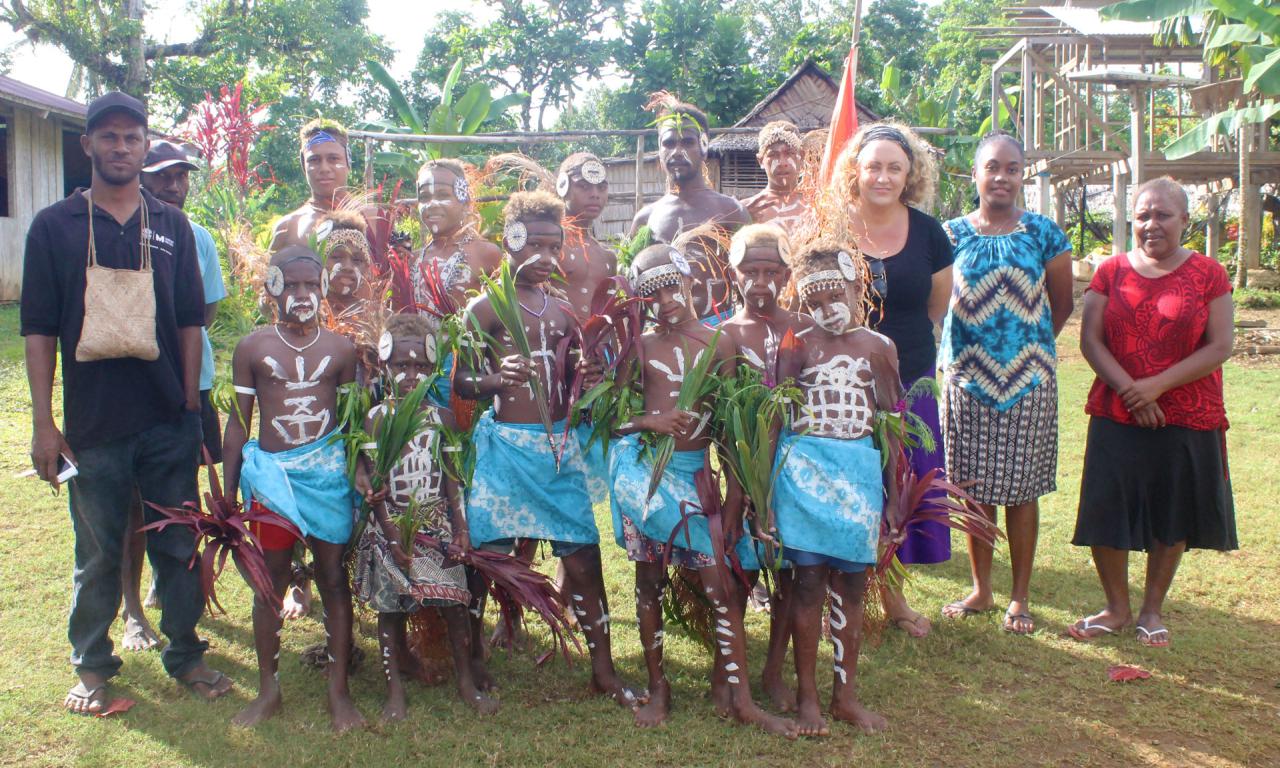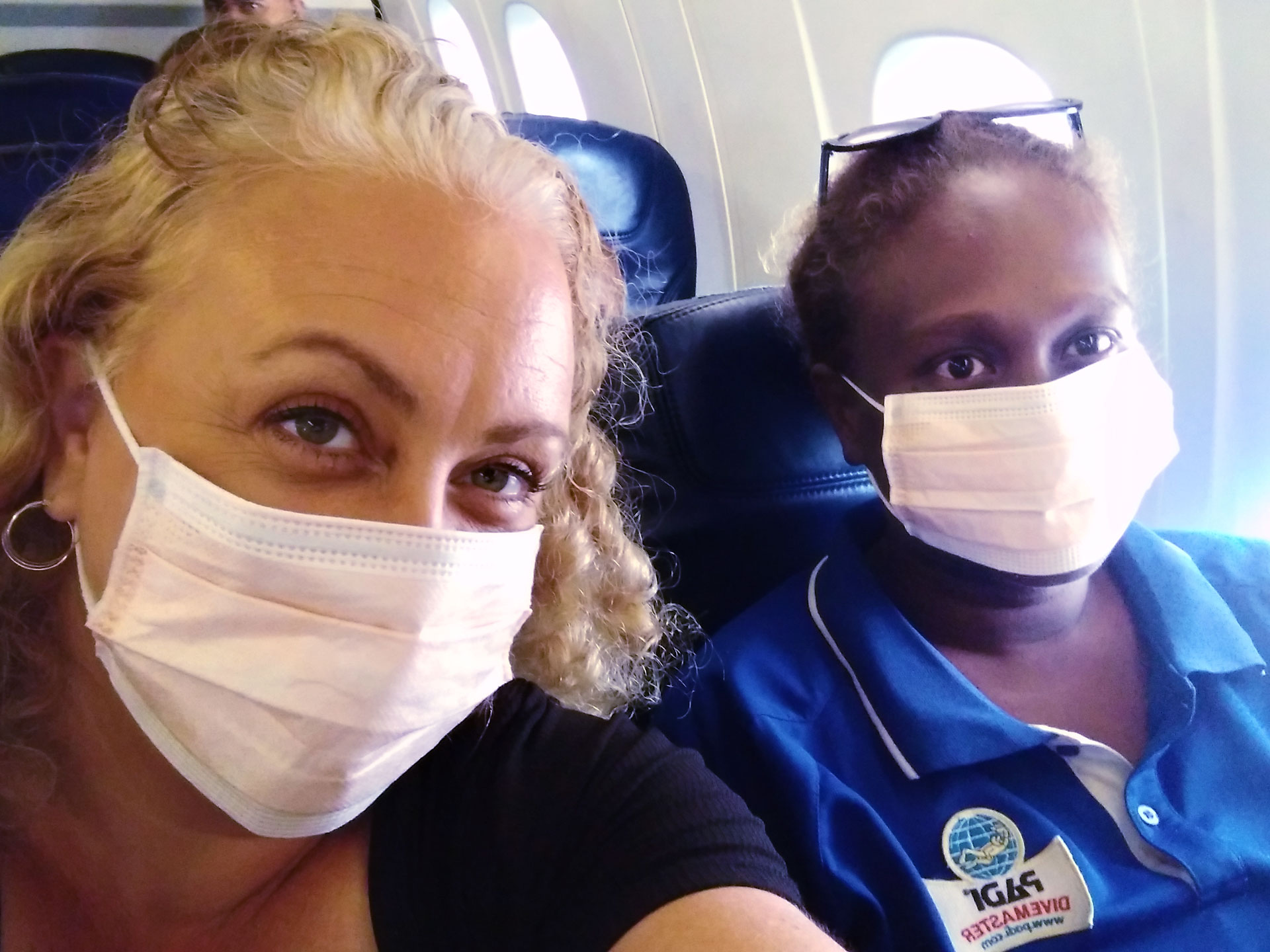
Worldfish and the CGIAR research program on Fish Agri-Food Systems (FISH) are global leaders in aquatic food systems research and innovation, and science and partnerships are the foundation of our work. Our team delivers robust evidence to policymakers and technological innovations to producers, value chain actors, and consumers to transform food systems. In this series, we profile our accomplished scientists in the spotlight.
Anouk Ride is WorldFish's social scientist based in the Solomon Islands. Ride's research focuses on human wellbeing and social security. Ride works at the intersection of conflict, gender and social inclusion in small-scale fisheries, analyzing the root causes of exclusion and violence. She also examines local indigenous-led solutions to development and security challenges and shocks related to climate change.
What are you currently working on at WorldFish in the Pacific?
I am currently reviewing community-based fisheries resource management (CBFM) in coastal communities, using data captured from the Solomon Islands, Kiribati and Vanuatu. In many coastal communities, there are either no-take fishing zones or seasonal fishing bans that allow fish populations to replenish.
Fish and other aquatic foods are the primary sources of protein and micronutrients in rural diets and also an important source of income. However, rural villagers still face various constraints and social exclusions that impact the sustainable management of aquatic food production. As part of my research at WorldFish, we are using a participatory tool, developed together with the Pacific Community (SPC) and other regional partners, to review the current resource management process and ways to scale up its effectiveness and inclusivity.
From your experience, how are small-scale fisheries faring amid climate change and climate-induced disasters in the Pacific?
The Solomon Islands and Vanuatu often face climate disasters, such as cyclones, earthquakes, landslides, flooding and rising seas. This year, we visited communities in Malaita that have reported widespread damages due to sea level rise. In particular, the seawater had flooded community gardens, disrupting local food production and food security due to spoilt crops. This results in economic hardship in remote communities, where the nearest town and shops can take up to one day of travel to reach.
Adaptation varies across villages, in some cases people are able to harvest fish and even use those harvests to help build better health services or help people in hardship. In other villages, overpopulation and lack of management means current food sources are strained, and you will see hunger and people having to leave islands to survive or rely on others for supplies and income.
What innovation do you think has the most significant potential to help build resilience in small-scale fisheries?
So far, I have not seen any innovation that can match the success of indigenous-community-led management of aquatic food systems. This community-led management allows members to decide on solutions to their fisheries and aquaculture activities, such as balancing and limiting harvesting rates, monitoring changes to the coastal area and responding to climate changes without the need for modern technologies.
Allowing communities to take charge of the sustainable management of their aquatic food production, such as reporting the decline of aquatic species and increasing incomes from sales of aquatic foods, increases their trust and independence in community organizing and governance.
I think the focus should now be on enabling indigenous communities to manage their resources in the face of modern challenges and a changing climate. Some important support for communities are information and education, backup from authorities in law enforcement, and national governments limiting encroachments and unsustainable practices (such as pollution from logging and mining) in areas surrounding coastal communities.
What are some community-led initiatives for responding to shocks?
It is important to consider how education and community organizations can build resilience. For example, the COVID-19 situation in the Solomon Islands has led to an economic downturn, widespread job layoffs and cash flow problems in local food markets. Community savings clubs, a local innovation pioneered by academic Alice Pollard, are helping members, especially the women, gain access to financial aid, allowing them to cash out savings and take up alternative income-generating activities. This is an example of a community-led management to help overcome hardship and challenges from socioeconomic shocks.
Do you think these community-driven approaches can be scaled up to ensure food, nutrition and income security in the Pacific? Please elaborate with examples.
WorldFish's main focus is to support the national, provincial and island-based governments in scaling up Community Based Fisheries Management to provide essential information and resources for all communities. It mainly includes disseminating information on the functions of CBFM, how it benefits villagers and complements the formal and state governance of marine resources.
The Pacific also has a tradition of local leaders and communities stewardship over their marine resources, and also on a regional level, being key in managing the world’s largest tuna resource (through the Parties to the Nauru Agreement) and establishing key agencies such as the Pacific Islands Forum Fisheries Agency and the Western and Central Pacific Fisheries Commission. So, I think the potential for local communities and the region more broadly to secure food security is high – the skills, interest and knowledge to do so are there.
However, policy still needs to address structural constraints, such as access to reliable information and education and addressing social exclusion within food systems. In the Malaita Province in the Solomon Islands, the provincial government conducts awareness and support campaigns to establish management that enable local communities to be more informed, skilled and self-reliant.
It looks promising that many more coastal areas will be under improved management in the near future. Malaita is the country's most populous island, and addressing food security there will be a boon to the whole country.

How can we ensure aquatic food production in the Pacific supports healthy and sustainable diets?
Community management has a role to play in promoting indigenous foods and food practices. We are working with other researchers to elevate local and healthy food systems, despite changes to local diets caused by shifts from subsistence to cash economies and populations moving to urban areas. Ensuring the sustainable management and supply of fish and aquatic foods is key to nutrition and health in the Pacific.
As you know, the relationship between gender inequality and climate change is often underestimated. How can we support gender-inclusion in climate policies in the Pacific?
Addressing gender and social exclusion in local governance and policies starts by first understanding the problem. Because the Solomon Islands is culturally diverse, the interactions between gender and tradition, culture and local power dynamics can vary. Sometimes, the barriers that prevent women or youth from being involved in fisheries are only known to those experiencing them. Conducting analyses that draw on diverse people's worldviews and taking an insider approach by listening and understanding is key to starting this change.
Solutions need to be negotiated with the local communities rather than imposed from aid projects, researchers or governments based on their visions of what inclusion looks like. Sometimes, this change can be slow and gradual, and in other cases, it can be fast as communities are quick to identify their exclusions and empowered to make the change. In other cases, change has to be imagined intergenerationally and in specific spaces. For example, in the Solomon Islands, women have fewer barriers to political leadership on the local level, so a current focus for women activists is to get them involved in provincial governance.
I always recommend showing, not telling. We need to identify what gender responsiveness looks, feels and sounds like, rather than imagining an abstract concept. This way, gender-exclusive communities can look to neighboring communities for good examples to follow. We need to make gender and social inclusion an actual lived experience shared amongst people.
How do you hope your research will contribute to a more climate-resilient food systems future?
I hope that the research on community-based fisheries management—how to make it effective and equitably distribute its benefits amongst everyone (men, women, youth and people with disabilities) and how governments can enable local management and control of their resources—will lead to resilient communities that can support themselves in their local food systems with inbuilt adaptations and protections to respond to disasters.
Anouk Ride’s work in the community-based fisheries resource management (CBFM) project contributes to the goals of the CGIAR Research Program on Fish Agri-Food Systems (FISH) under its Flagship Program on Resilient Small-scale Fisheries.